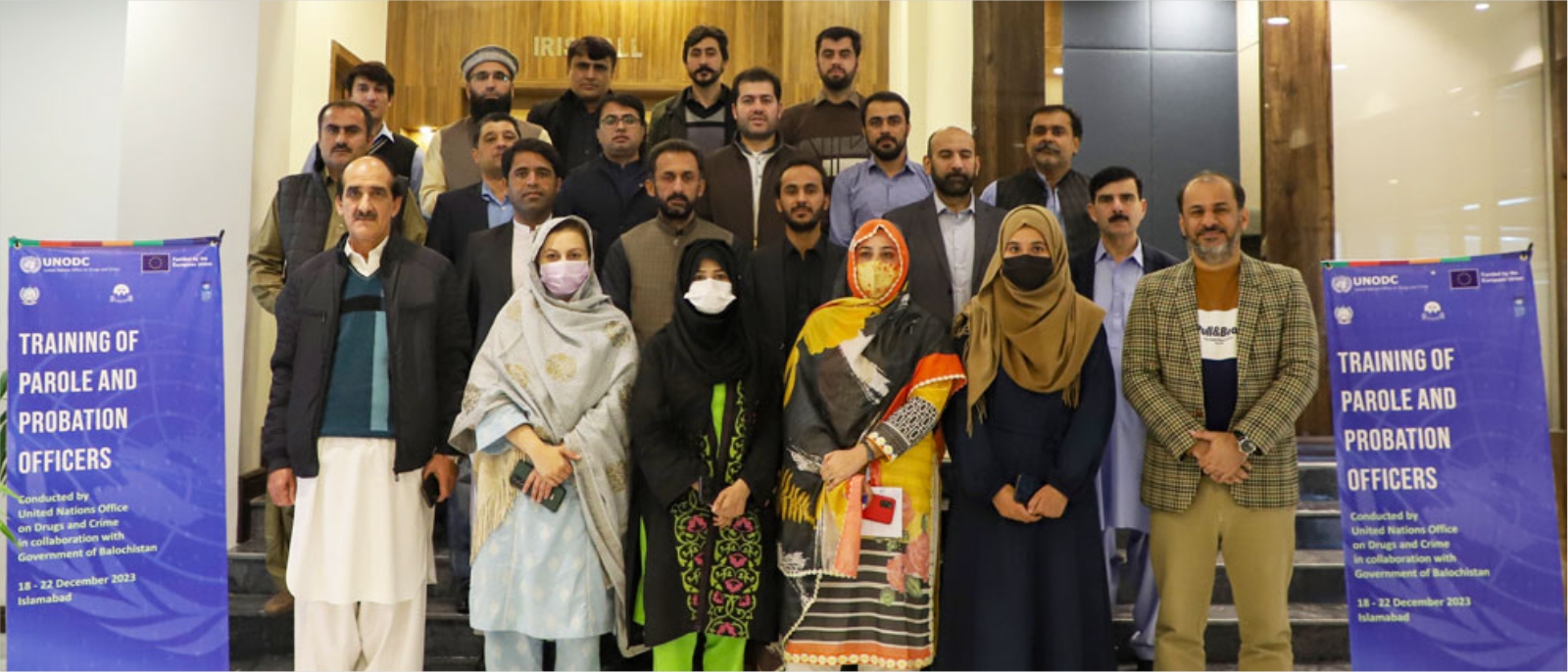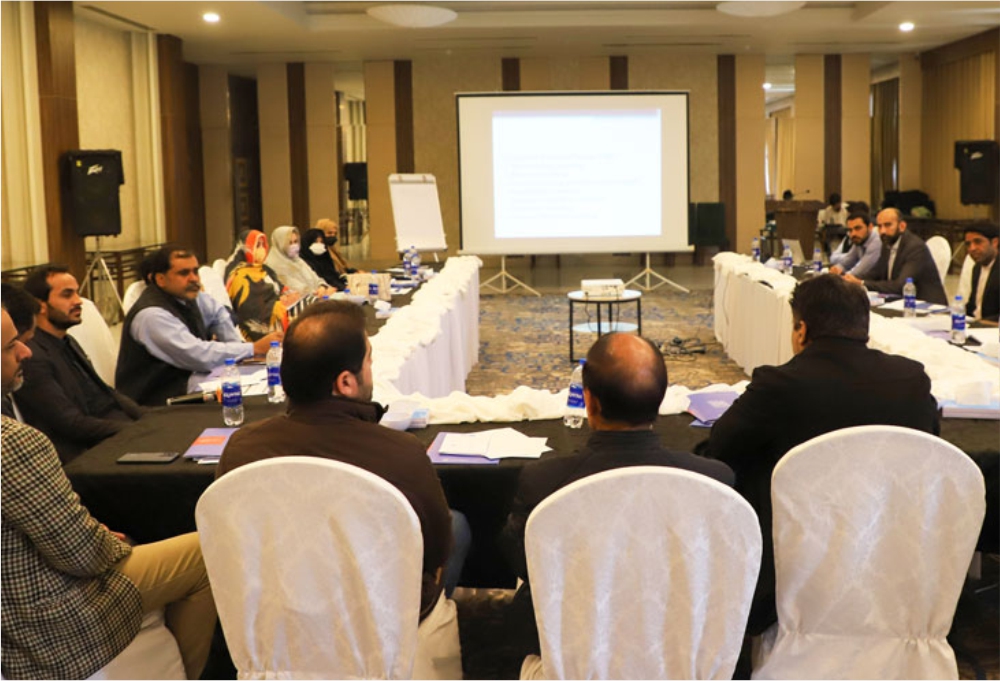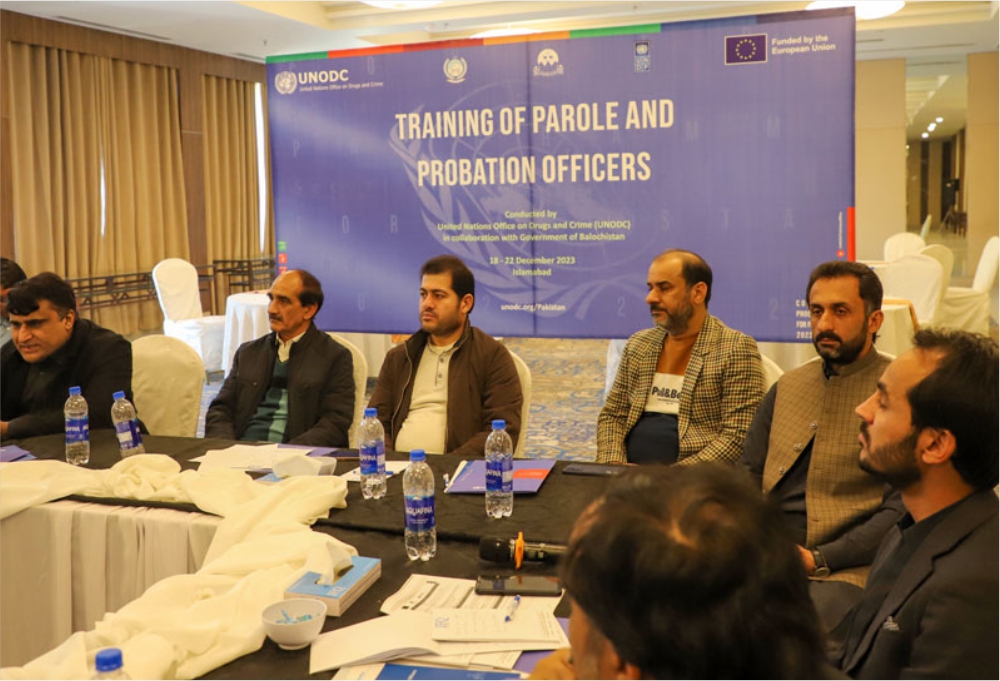
22 December 2023, Islamabad - “This training session promises significant advantages for our departments. Through the exchange of on-the-ground experiences and active participation in interactive discussions, we collaboratively formulated effective strategies to tackle our daily challenges. The inclusivity of our colleagues from Khyber Pakhtunkhwa was particularly valuable, enhancing our learning experience by fostering a diverse and comprehensive perspective," said Mr. Aminullah, Director Reclamation and Probation, Balochistan. Mr. Aminullah was speaking at the third capacity building workshop held for the parole and probation officers of Balochistan and Khyber Pakhtunkhwa.
UNODC and UNDP, in partnership with the Reclamation and Probation Directorates of Balochistan and Khyber Pakhtunkhwa, successfully conducted three rounds of capacity-building workshops in the final quarter of 2023. This initiative was carried out under the ‘Deliver Justice Project’ funded by the European Union (EU). It aims to support reform processes to ensure the delivery of people-centered justice, enhance access to justice for all, particularly women and less privileged groups, and improve service delivery of the security sector in line with constitutional safeguards and international standards in Balochistan and the Merged Districts of Khyber Pakhtunkhwa.
The workshops provided a unique platform for probation and parole officers to exchange their experiences, discuss challenges, and explore opportunities within their professional roles. One of the participants, Ms. Kulsoom Jaffer, Assistant Director for the Directorate of Reclamation and Probation, Balochistan, remarked, “I can relate to all the examples as I encounter many challenging cases on a daily basis. Now, I understand the theoretical foundations of my work, which will transform my approach to it."


The series of three 5-Days workshop were designed to blend didactic instruction with skill-building sessions, all with the overarching goal of fostering a more inclusive and equitable approach to handling probationers. The sessions encompassed crucial subjects, including effective communication, adept report writing skills, a nuanced understanding of the criminal justice system, insights into international legal systems, strategies for preventing recidivism, and promoting the social integration of offenders while addressing offending behavior.
Probationers are usually first-time, non-violent offenders who are deemed appropriate to rejoin the community under supervision. In Pakistan, most jails are overcrowded and the practice of probation, on one hand, relieves the system, and on the other, prevents offenders from lapsing into the vicious cycle of reoffence through correctional methods. Mr. Arshad Nawaz Khan, Professor of Law at the Quaid-e-Azam University Islamabad and one of the instructors, emphasized that enhancing the capacity of parole and probation officers is crucial, given their pivotal role as instrumental guides, steering offenders toward productive citizenship. He stressed the importance of refining their counselling and interviewing abilities, equipping them with the necessary skills to navigate within their legal mandate.